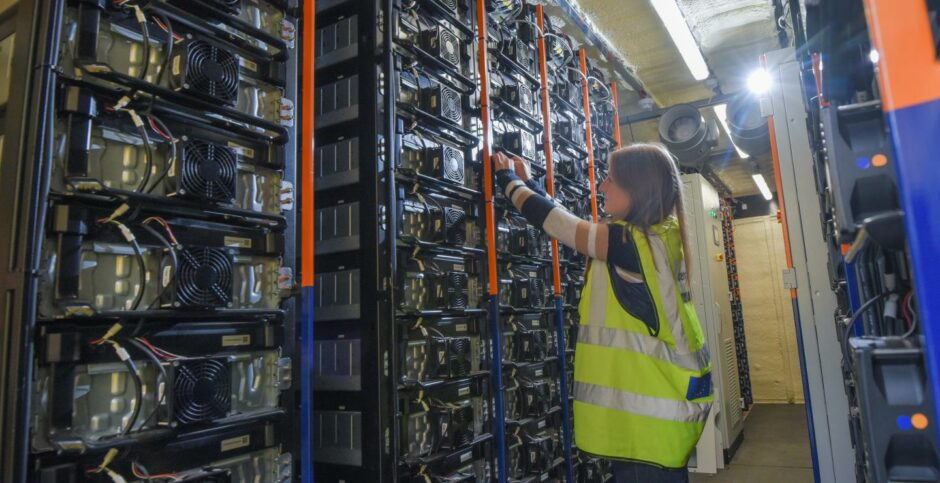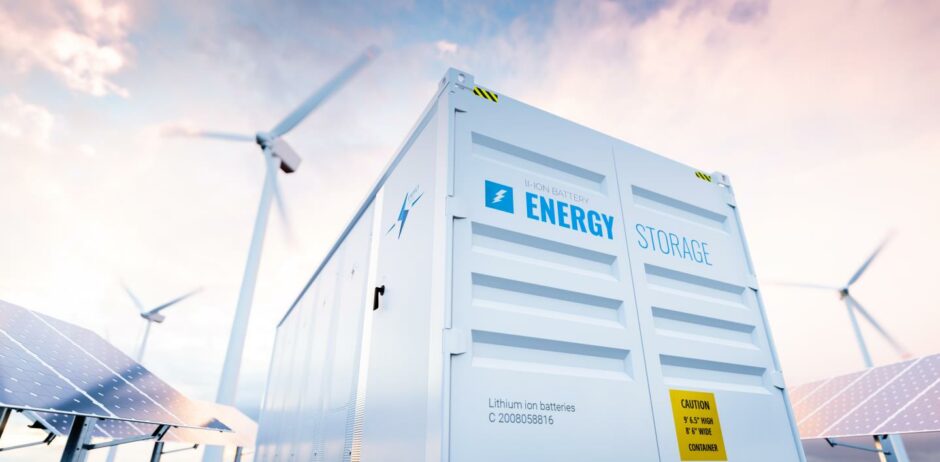
Utilities firm Centrica has acquired an Aberdeen battery storage project that could “unlock wind energy potential” in the North Sea.
The fully consented 30 megawatt (MW), two hour plant is located in Dyce on the outskirts of the Granite City, near to a connection for offshore wind farms.
By storing green energy when it is not needed and feeding it into the grid when demand increases, the project will help to ease network constraints.
In doing so it will also improve the energy independence of the UK and reduce reliance on fossil fuels.
Last year the National Grid paid almost £250 million to wind farm operators to shut down turbines, as they risked overloading the network, a process known as curtailment.
Battery storage is one way that excess power can be collected and used at a later date, ensuring less green electrons are lost.
Once built, the Dyce battery storage plant will be able to store enough energy to power 70,000 homes for an hour – this discharge could happen up to four hours per day.
Cragside Energy was the main developer behind the project, backed by Omni Partners.
Having obtained planning consent in November, the plant is expected to start up in mid-2024, with construction lasting around eight months.
Bill Rees, director of Centrica Energy Assets, said: “Battery storage can play a strategic role in helping to transition away from fossil fuels, by smoothing out the peaks and troughs associated with renewable energy generation.
“We should treat renewable energy like a precious resource and projects like this can help to maximise its efficacy.”
The project forms part of Centrica Energy Assets’ plan to deliver 900MW of solar and battery storage assets by 2026.
London-listed Centrica (LON: CNA) already owns and operates the 49MW fast response battery at Roosecote, Cumbria.
Centrica Business Solutions managing director Greg McKenna, said: “Improving the energy independence of the UK is essential to help manage energy costs and move away from fossil fuels. The Government has set a target of a green electricity grid by 2035 – that’s only achievable if we build out the level of flexibility in the system, to help manage supply and demand.”
Going forward Centrica, which owns British Gas, will work with Cragside Energy to identify new opportunities in the energy storage space.
Cragside Energy’s growing pipeline exceeds 200MW, and focuses on low carbon and flexible assets, including energy storage, solar and peaking plant schemes.
Ben Coulston, director of Cragside Energy, said: “Targeted investment into a complementary mix of technology and infrastructure is crucial if the UK is to fully harness its renewable energy potential.
“Battery storage, such as the project in Dyce, will contribute to the upkeep of a stable and resilient network and we have enjoyed partnering with Centrica as the project transitions into the next phase.”
Recommended for you


 © Shutterstock / petrmalinak
© Shutterstock / petrmalinak